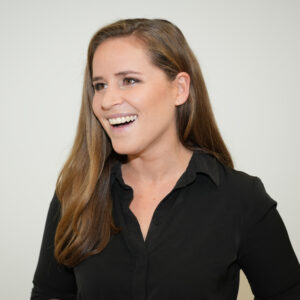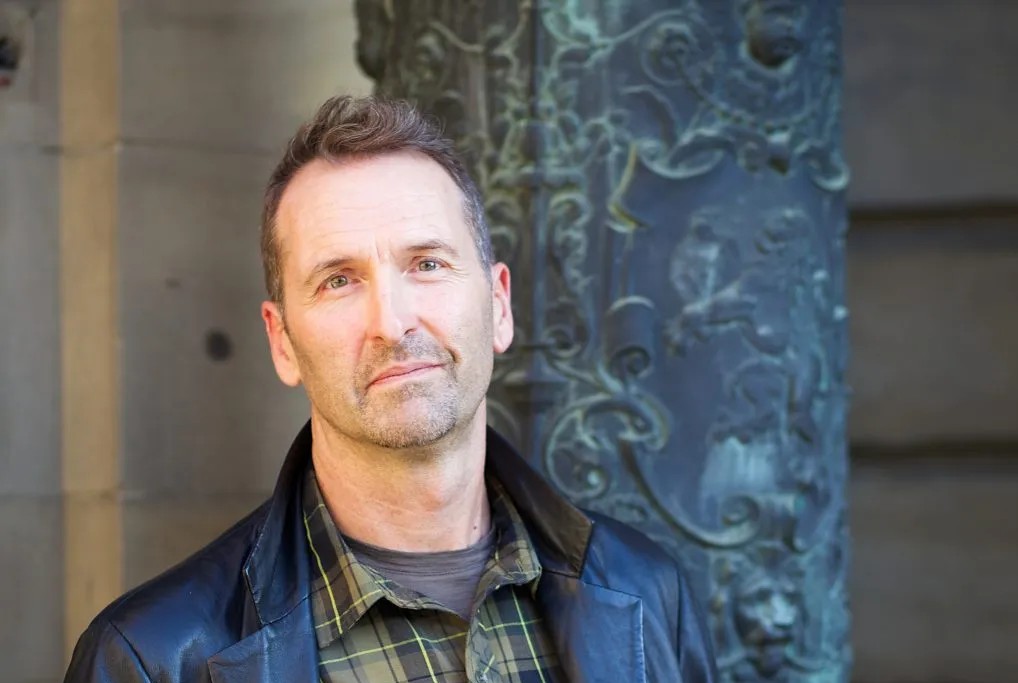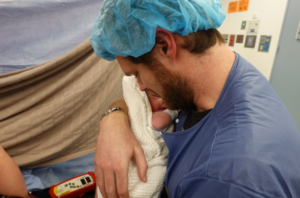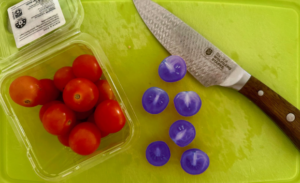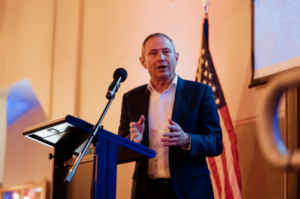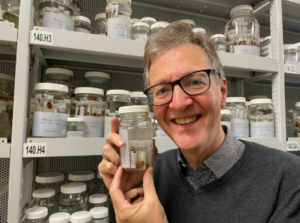Dr Paul Hardisty will soon return to Ukraine to talk to local people in the war-inflicted nation.
“When the Russians invaded Ukraine in 2022, I got a press pass from the Armed Forces and went over there to write about what was going on,” says Paul.
“I spent a month by myself, travelling around, interviewing people all over the country – soldiers, aid workers, refugees, you name it.”
After a few return trips, he is half-way through writing a new non-fiction book about Ukrainians’ experiences during the current conflict with Russia.
While war correspondence is a far cry from the field of environmental science that built Paul’s career, he says the root cause of conflict is disaffection.
“It’s always about inequality, about environmental degradation, about injustice. It means a group of people are facing real hardship and they feel like they’ve got no other way to get their point across, or to fight back, and so they are forced to take up arms.
Caption: Dr Paul Hardisty’s career has taken him around the world, including the war-inflicted Ukraine
Credit: Supplied Paul Hardisty
“I was in Yemen when the civil war broke out in 1994. I was in Ethiopia when the Mengistu regime was falling. I’ve been to a lot of places where there was conflict.
“And I’ve found that environmental issues are often at the core of the problem, one way or another.”
A SHARED VISION
While Paul’s been an avid writer since his teens, it was his passion for the environment that launched his career.
After finishing university, he co-founded an environmental consultancy firm called Komex Environmental.
“We started initially working for oil and gas companies and mines that had pollution problems, and then we started expanding into the United States … and then into Europe and the Middle East,” says Paul.
“When we expanded into Europe, I was living in the UK and worked on atomic waste from nuclear power generation but also from nuclear weapon sites.
“We rode that wave through the 80s and 90s where there was a lot of environmental awareness and a lot of new legislation, particularly around an area that I focused on, which was water.
“Often, it’s luck. You meet the right people at the right time in the right place.
“You come together … you have some compatibility and a shared vision, and it was really fun, it was really exciting.”
Caption: Paul co-founded Komex International with four colleagues and built it into a multinational company
Credit: Supplied by Paul Hardisty
Over two decades, Paul and his colleagues built the business from a start-up to a multinational company.
In 2007, it was sold to an Australian engineering services firm today known as Worley.
Paul says the timing of the sale turned his dream of one day coming to Australia into a reality.
“We had about 1000 people at the time and we were turning over about US$100 million a year, and they bought us just before the [Global Financial Crisis] at the height of the market,” says Paul.
“It brought me and my family to Australia almost 20 years ago, for which we’re super grateful.”
FROM WATER TO WORDS
Paul continued to work under Worley for 8 years, before a new opportunity arose.
He was asked to join CSIRO as Director of their Climate Adaptation Flagship, leading a national initiative assisting communities, governments and industry to respond to the impacts of climate change.
“Within a year of being in that role, CSIRO reorganised. They went from 26 flagships or divisions, down to eight business units,” says Paul.
“I was chosen to lead the Land and Water Business Unit, which included what was left of climate adaptation.”
After 3 years at CSIRO, Paul left to focus on his writing.
He wrote a series of thriller novels, including an award-winner.
But in 2017, his career took another turn when he was approached by the Australian Institute of Marine Science, also known as AIMS.
Caption: Paul was the CEO of the Australian Institute of Marine Science for 6 years
Credit: Supplied by Paul Hardisty
Paul was living in WA when he was offered the role of CEO at AIMS, which is dedicated to researching and caring for Australia’s tropical waters.
As a new Australian citizen, it was a chance to “do something really meaningful for my country, at the highest level … in an area that I’m passionate about,” he says.
“One of the things I’m proudest of from my time at AIMS is that we basically raised our game in terms of meaningful, deep partnerships and collaborations with Traditional Owners in Sea Country.
“We were the first and as far as I know, still [are the] only federal agency to embrace and enshrine FPIC – free, prior, informed consent, which is a UN construct.
“[It] basically says we don’t go and do anything on Sea Country without the full, prior and informed consent and ongoing involvement of the local Traditional Owners.
“We demonstrated that we could lead by example – it’s not advocacy, it’s leadership.”
Despite loving every minute of his 6 years at the helm of AIMS, Paul was again pulled back to the pen and paper.
“I decided I have to start writing full-time now, because I’ve got way more years behind me than ahead of me and … I’ll regret it if I don’t,” says Paul.
MAKING CHANGE THROUGH CHAPTERS
Paul’s written seven novels and multiple textbooks and is about to publish his third climate fiction novel.
The Hope, which will be published early in 2026, is part of a trilogy that helps readers understand the science of climate change and its possible future effects through creative storytelling.
“I’m trying to take that lifetime of environmental experience and knowledge and deep understanding of some critical issues … and put it into stories that people can access and connect to,” says Paul.
“Storytelling touches people in a way that the science doesn’t.”
Caption: Paul has written multiple novels and textbooks, using writing to explain science
Credit: Supplied by Paul Hardisty
Paul’s career advice is simple.
“You’ve got to do something you love and you’re passionate about,” says Paul.
“If you’re passionate about what you do and you love what you do, you will be good at it. It doesn’t all have to happen at once – there’s a journey.
“Work out who you really are and make that your life’s work.”


